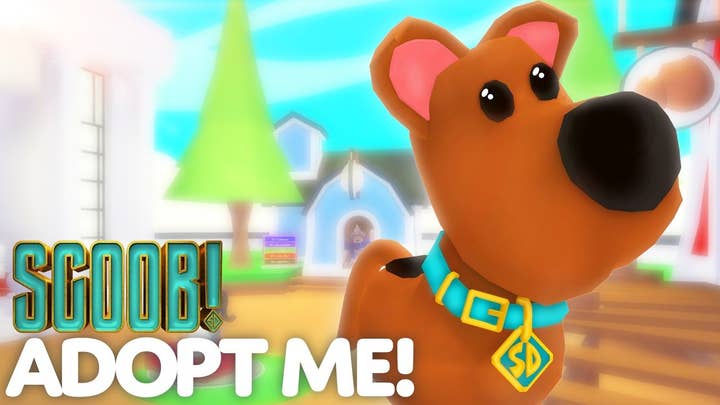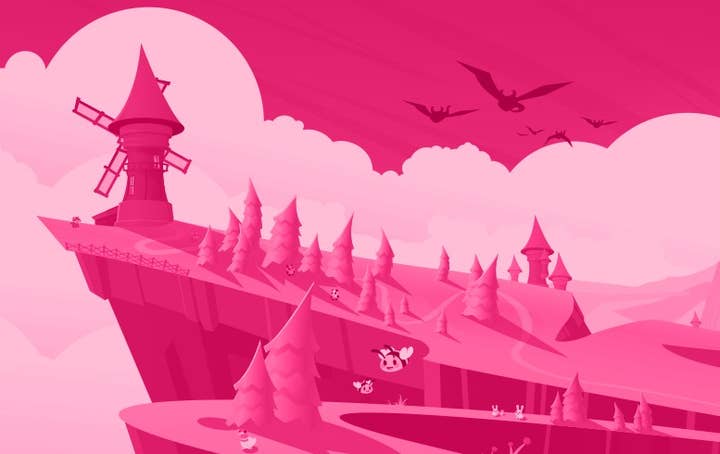Adopt Me: The most popular game you've never played
Josh Ling on the rapid rise of the biggest game on Roblox -- millions in revenue, 50m monthly users, and a team set to reach 100 people by the end of 2020
If one were asked to write a list of the most popular games in the world in 2020, the majority would contain a handful of common choices: Fortnite, Minecraft, League of Legends, Honor of Kings, PUBG Mobile, Pokémon Go, maybe even CrossFire for those with an eye for trends outside of Europe and North America.
Whether Roblox would spring to mind for most people is another matter. Aimed squarely at the kids market and as much a social sandbox as a traditional game, it is at least as popular as half of the games on that list, with somewhere in the region of 150 million monthly active users. Indeed, Roblox is now so popular, the games that only exist in its virtual space rival Apex Legends and Call of Duty Warzone for MAUs.
And one game in particular: Adopt Me, a social collection game that recalls The Sims, MapleStory, and the Tamagotchi digital pets that proved so popular in the late '90s. According to Josh Ling, Adopt Me's director of business development, the scale and success of Adopt Me is largely overlooked by the industry at large, in much the same way as the commercial potential of the Roblox platform itself.
"You're definitely not the only one," Ling says, when I admit my surprise at first hearing of Adopt Me's remarkable growth. "Most of what I would define as the traditional games industry doesn't really understand Roblox -- or just thinks it's a game for kids."
"Most of what I would define as the traditional games industry doesn't really understand Roblox -- or just thinks it's a game for kids"
Ling is something of a veteran in a field he refers to as "UGC" -- or user-generated content, a term that became well-known in games thanks to mods and products like LittleBigPlanet, but has evolved into a thriving industry in its own right thanks to the popularity of live-service games. One of Ling's previous employers is a perfect example: HyPixel, which grew to a 60-person company by creating unique experiences on top of Minecraft, running them from a private server, and earning revenue by selling cosmetics to its hundreds of thousands of concurrent players.
All of HyPixel's mini-games were created by taking Minecraft's existing systems and loops and repurposing in ways that Mojang never intended. Essentially, they are monetised metagames, and the idea had enough potential for Riot Games to acquire the company in April this year.
"People were using Minecraft almost like a game engine, to create new types of gameplay," Ling recalls. "Instead of exploring a world and fighting monsters, you might be fighting other players... We had games where you could race karts around, or build creative houses.
"During my time there I definitely learned the value of UGC. A lot of people are talking about it these days, but a lot of people forget that UGC has been part of the games industry for decades."

Certainly, the list of successful products created through modding other games is long and distinguished: from Dota to DayZ, Garry's Mod to PUBG. What HyPixel and similar companies are doing, however, marks an evolution of the concept, for an era in which individual games are large enough to be ecosystems that can sustain other products and experiences.
According to Ling, Minecraft turned into that kind of platform essentially by accident; a single-player RPG made by a solo developer that went in a completely unforeseeable direction. The same could even be said for Fortnite, a game that became popular through a mode Epic only added to improve its poor performance, and is now so big that most of its users see battle royale as incidental to the experience.
The difference with Roblox, he explains, is that it was designed from day one to be a social platform for user-generated content -- what more and more people in the industry are describing as "the metaverse." Compared to the laborious process of coding in Java for Minecraft, using Lue in Roblox Studio was "freeing and exciting." After three years at HyPixel, Ling decided to leave the company in July 2018 to focus exclusively on Roblox.
"Obviously there are still a lot of limits and frustrations, but it does what it claims to do: a kid could spend an afternoon making a game, click a button, and it's online and any of their friends can play it," he says. "That was exciting after three years stuck in the closed ecosystem of Minecraft."
"We have a popular game, it has players, it has money -- what do you do next?"
Over the course of a year, Ling learned all he could about the Roblox platform and the kinds of products that were popular among its rapidly growing audience -- at the start of that period, in July 2018, it had 64 million registered users, and by the end it had grown to more than 100 million.
While Ling recognised that there were a lot of similar products on the platform, it was also clear that developers who found the right measure of innovation could win a huge following. Perhaps the most prominent example in June 2019 was Adopt Me, which was at the start of a burst in popularity due to an update that added collectible pets to the game. The development team was just three people at that time, and they asked Ling to join to help supervise the growth that the game's ballooning popularity demanded.
"The game really started to gain traction, and that's when I saw it," he recalls. "I saw a lot of parallels between the early days of HyPixel and Adopt Me. It starts out with a couple of friends making something, one thing leads to another, right place, right time, right decisions, a little bit of luck, and suddenly it blows up.

"You have a successful game and suddenly you need to invent a studio around it. It's the opposite of the traditional games industry problem... We have a popular game, it has players, it has money -- what do you do next? Well, let's have more than one programmer working on it for a start."
The Adopt Me team certainly has more than one programmer now. Indeed, the team now has more than 30 people -- an order of magnitude greater than one year ago -- and Ling describes plans to grow to between 80 and 100 people before the end of 2020.
"If you have traditional game dev -- AAA and indie devs who are in their 20s and 30s and above -- the Roblox community is a lot younger," he says. "There are a lot of 18 year-olds, a lot of [people in their] early 20s, and the people we've hired have been working on Roblox for five to ten years already. They've just been doing their own thing, and really understanding and learning the platform... Our team skews very young, especially on the development side."
The insular nature of the Roblox community makes it difficult to find people with relevant experience in most disciplines -- an artist can be hired from the wider industry, Ling says, but essential fields like programming and design are more challenging. "If we were making a Unity game I could go and hire 20 amazing, talented people from around the world," he says. "But Roblox developers? There aren't many people who identify like that."
"We want to take that success and capitalise on it by building the first great studio of the 2020s"
The Adopt Me team is acutely aware that, in order to execute its growth plan and expand further still, it will need more of what Ling calls "studio experience" -- something that isn't abundant within the largely hobbyist community of Roblox. It is also notable that the game has reached an audience of 50 million MAUs and millions of peak concurrent players functions that are absolutely essential to companies with similar levels of reach. Hiring data and analytics specialists are a top priority, Ling says, and with that kind of specialist expertise at its disposal for the first time, Adopt Me seems likely to become better at attracting and retaining users.
"We have this ludicrously huge game with a lot of revenue," he continues. "We're able to self fund our way to 100 people, comfortably. And now we're in the process of finding out what we actually do -- what we are as a studio, the kinds of things we want to make, and who we want to be."
Ling adds, with a striking degree of confidence: "We want to take that success and capitalise on it by building the first great studio of the 2020s."

While that is a lofty goal, Team Adopt Me is working from a position of considerable strength. Speaking to GamesIndustry.biz in 2017, Roblox CEO Dave Baszucki said that the goal was for the platform's most successful creators to earn $10 million in annual revenue. Ling can't comment on the specifics of what Adopt Me makes, but his response suggests that Baszucki's milestone has already been passed by a number of teams.
"There are multiple studios that are making millions of dollars in revenue [a year] on Roblox," he says. "That's at the top, top end, obviously, but you don't even need to be that successful to be sustainable."
Whether Team Adopt Me can become the studio it wants to be on Roblox alone is another matter, however. One need only look at the closure of Mixer to understand the degree to which some creators rely on single platforms, and the control over their own futures they surrender in doing so. Ling makes it perfectly clear that Roblox has been -- and will continue to be -- a productive home for Team Adopt Me, but there are still "elements of the platform that we would love to change."
"For instance, the cut to the platform is very high on Roblox, which is something people should know going in," he says. "Roblox is going to be taking 70% or 80% of the revenue that you earn. Obviously, they provide the engine and the free hosting, so there are trade-offs -- it's not like they're just taking extra money because they can -- but it is high, so you need to be earning more to compensate.
"We're definitely exploring every opportunity. Like you said, having all of your revenue derived from a single platform is scary, honestly. As much as we love Roblox and have a great working relationship with them, one decision on their end could fundamentally change our entire revenue stream. We're definitely thinking about ways we can diversify.
"We want to go where the players are, right? Well, the players are on Roblox. But maybe in the future there are other areas we can explore."

